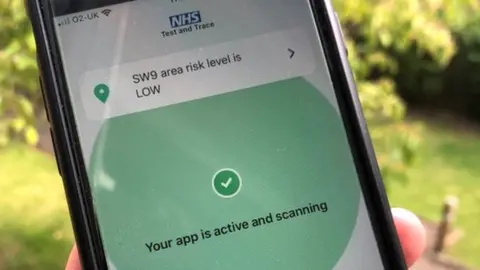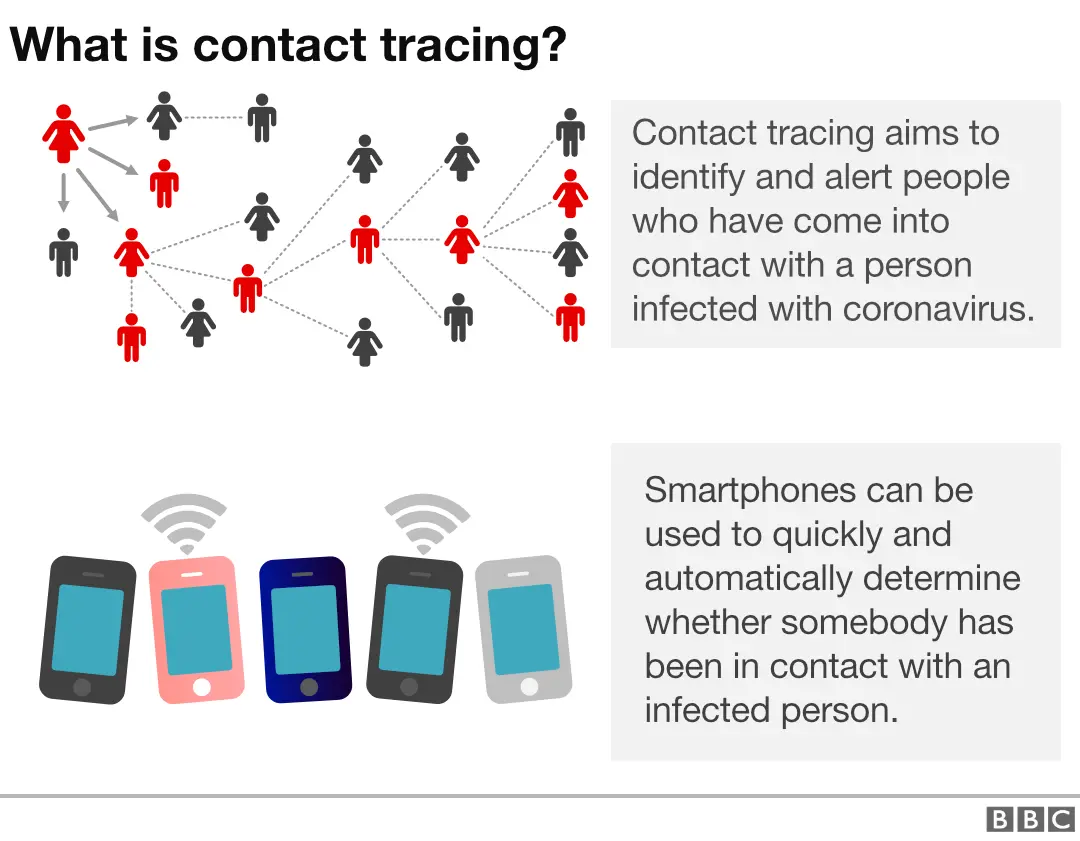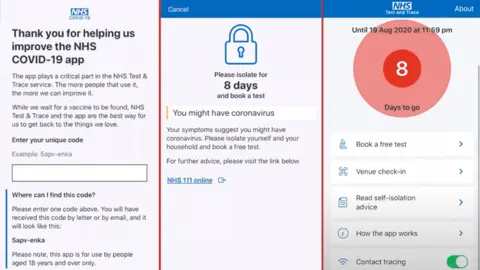Coronavirus: 'Government must publish contact-tracing app data'
 PA Media
PA MediaA leading health charity is demanding details about how England and Wales' contact-tracing app fared in tests.
The app is due to launch on Thursday.
It has been trialled in the London Borough of Newham as well as the Isle of Wight, but data from from the pilots has not been made public.
The Health Foundation said it was particularly concerned the tech could exacerbate existing inequalities, leaving some people at greater risk of being infected.
The government has responded saying: "We have spoken with groups with protected characteristics, such as age, ethnicity and disability, those experiencing health inequalities and those groups particularly impacted by coronavirus."
Diverse test group
The NHS Covid-19 app has been in development since March in one form or another, and follows the release of parallel contact-tracing smartphone software in Northern Ireland and Scotland.
Among other functions, they use Bluetooth signals to determine when two people have been close together for five minutes or more, so that if one is later diagnosed as having the virus the other can be sent an alert telling them to self-isolate.

Two different versions of the app have been tested in the Isle of Wight.
The most recent release was also trialled in Newham specifically because of the wide diversity of the area's 267,066 residents.
According to the Department for Health's Test and Trace team, which is responsible for the initiative:
- 83% of the local population identify as "black, Asian and minority ethnic" (BAME)
- 40% have reported a disability or health condition
- 69% are aged between 18 to 64
The Newham test began in late August, but its findings have not been made public, leading the Health Foundation to call for greater transparency.
The charity called attention to a previously unreleased Ipsos Mori poll, which it said indicated that participants from black and minority ethnic backgrounds, women, younger and older age groups, and unemployed people were all among those with a relatively low awareness of the app.
 Department of Health
Department of Health"Piloting the app in Newham was an opportunity to understand how it works among different populations," it said.
"But without publication of any findings from the pilot study, we do not know whether these major concerns have been addressed."
It added that one worry was that those who did not use the app would not benefit from up-to-date information about their risk of infection from others, potentially putting them more at risk.
While the Test and Trace team has not published its results, it has detailed some of the steps it intends to take to encourage the app's adoption, including:
- working with influencers who are popular with minority groups
- making sure it is advertised in a way likely to reach diverse communities
- creating partnerships with employers, businesses and health organisations.
The BBC has been told the app will also launch with more than the six languages the test version currently provides.
